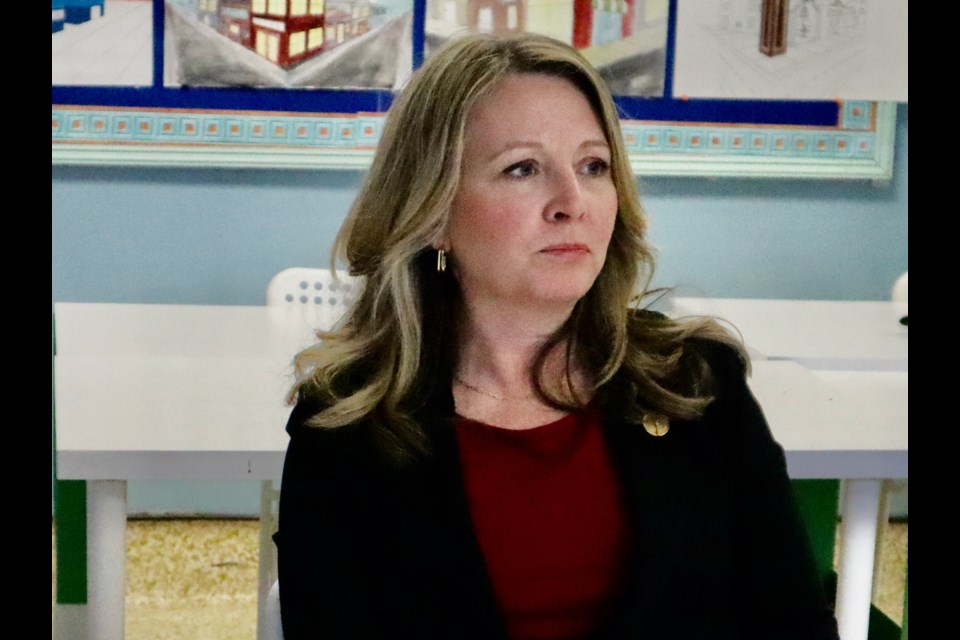THUNDER BAY – Local and provincial leaders are reacting after a group of Treaty 9 First Nations launched a lawsuit with potentially massive consequences for how the lands are governed, including the approval of mining projects in the Ring of Fire.
While government leaders remained tight-lipped on the development, leaders of Ontario's opposition parties say it represents the government's failure to build productive relationships with First Nations and conduct proper consultation.
Leaders from 10 Treaty 9 communities announced Wednesday they intend to sue the provincial and federal governments, claiming they never agreed to give up jurisdiction over their lands and saying the governments are breaching the treaty by approving development on treaty land without First Nations’ full consent.
The First Nations have suggested the written version of the treaty did not accurately reflect oral negotiations, and that the written version was not shared with their communities.
The communities include Kitchenuhmaykoosib Inninuwug, Neskantaga, Eabametoong, Ginoogaming, Aroland, Constance Lake, Kashechewan, Attawapiskatt, Apitipi Anicinapek Nation and Fort Albany.
Treaty 9, signed in 1905 and 1906 and later expanded, covers a vast area of land that represents about two-thirds of the landmass of Ontario, including the long-touted Ring of Fire mineral deposits.
Taking questions at a government announcement Thursday, Thunder Bay–Atikokan MPP Kevin Holland, who serves as parliamentary secretary to Minister of Northern Development and Indigenous Affairs Greg Rickford, said his government was still reviewing information related to the lawsuit.
“Our duty to consult as outlined in the federal act is very clear to us, and we take it very seriously,” he said. “We continue to do the consultation that is required by our government with our First Nation communities.”
“If there are concerns about process or if there are individual First Nations communities’ concerns, we are open for those conversations and dialogue, and that’s where we will have those conversations, is at the table with them.”
Holland added Rickford “is working closely with staff and he will be providing further comment.”
Pressed on the lawsuit in question period Wednesday, Rickford had said he wouldn’t comment on matters that are before the courts.
Marit Stiles, the newly-minted leader of the Ontario NDP, said in an interview the lawsuit showed the Ford government’s approach to First Nations is failing.
“I think we’re not going to see the kind of development some people want to see, because the government is taking the wrong approach,” she said. “It should not happen, and it will not happen, without their prior, informed consent. I think First Nations communities today in Treaty 9 made that really clear to the government.”
“We really need to stand by those principles of free, prior, and informed consent,” she said. “When a premier like Doug Ford literally says, I’m just going to run a bulldozer over everything, it sends exactly the wrong message – it’s starting at a point of crisis.”
Mike Schreiner, Ontario Green Party leader, who like Stiles was visiting Thunder Bay for the Northwestern Ontario Municipal Association (NOMA) conference, agreed the province isn’t taking consultation with First Nations seriously enough.
“One of the things I’m hearing from a lot of Indigenous leaders is that the province really doesn’t have a framework for consultation,” he said. “That leads to mistrust, and that actually delays some economic development projects.”
Schreiner said he intends to push the government to develop a framework for meaningful consultation “so it’s not just checking boxes and moving on.”
That work is crucial to not only respect treaty commitments but to power the move away from fossil fuels, he added.
“We are going to need mining to mine the critical minerals for the transition to green economy, but we have to make sure we do it in a way that respects Indigenous sovereignty and Indigenous rights, and in a way that ensures we use sustainable mining practices.”
